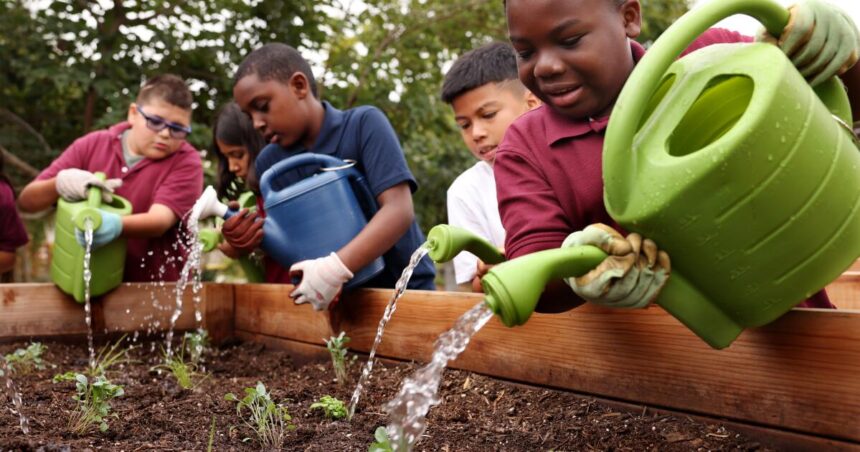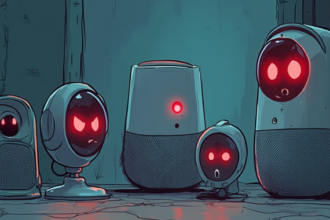Twenty years ago, a few friends from West Adams, Los Angeles, came up with a novel idea: jackhammer the asphalt and cement of their nearby 24th Street Elementary School and plant shade trees and gardens.
They created the garden to support the project, but school and foundation officials think it was a visionary decision. Elizabeth Hall, the foundation’s outreach and development director, says the garden at the 24th Street school is crucial in teaching climate literacy to its 453 students, from kindergarten through fourth grade. At the Title I school, about 90 percent of the students are classified as low-income.
“Teachers in our schools are very motivated to teach, but very few LAUSD teachers are trained to do so,” Hall said.
The center sits at the heart of 24th Street Elementary School’s gardens, which now encompass a lush acre with shade groves, an orchard of kumquats, apples, pears and pomegranates, and countless vegetable, herb and flower beds.
Hall said the foundation developed a curriculum that is integrated not only into regular classroom science classes but into other subjects, particularly language arts.
24th Street Elementary is “special,” said Veronica Brown, the school’s principal, now in her second year. Students learn where their food comes from, how to grow and prepare it, and then recycle their waste into compost. “This is something that should be replicated in every school,” she added.
This spring, the school was named the only California Green Ribbon School in the Los Angeles Unified School District, an award that recognizes campuses that reduce environmental impacts and costs, improve the health and wellness of students and faculty, and provide effective environmental education.
What’s the best thing about the garden? Earlier this year, three third graders told me they loved eating the sunflowers and fruit, especially the mulberries. They loved that “the juice got on your clothes.”
Hall said the nonprofit’s close relationship with school officials makes it easier to withstand staff turnover and turnover within the Los Angeles Unified School District. If a full-time horticulture teacher takes another job, the foundation can step in and find a temporary replacement until a full-time teacher can be hired.
The foundation maintains the gardens and organizes 1,400 hours of community volunteer work at the school each year.
The school raised $210,000 last year to support a full-time garden teacher, a part-time parent-teacher staff member, a twice-monthly free farmers market for school staff and a lunchtime share table where students can leave or get refills of unopened cafeteria food.
24th Street School is one of 10 Title I schools in Los Angeles, where at least 40 percent of enrolled students come from low-income families who qualify for free or reduced-price lunches, and has a garden program supported by the foundation.
Hall said the goal of the garden program is to instill lifelong habits of sustainability in students and their families. Last year, the school turned 16,000 pounds of cafeteria food waste into 1,600 pounds of compost.
“Once the kids understand how and why, they love the mess,” said Anne Dunn, the school’s compost manager. “They dig in the mud and encourage their parents to do it at home.”









